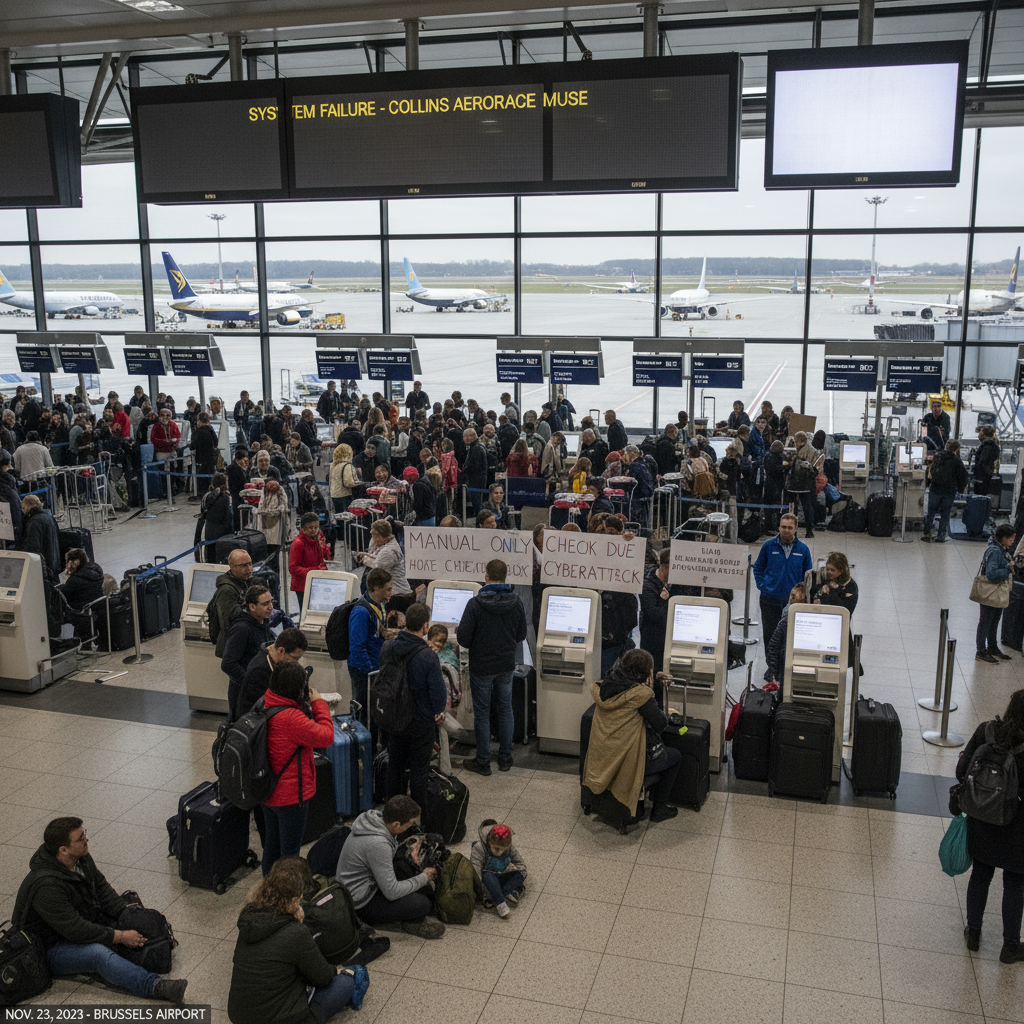Physical Address
304 North Cardinal St.
Dorchester Center, MA 02124
Physical Address
304 North Cardinal St.
Dorchester Center, MA 02124
Global aviation news tracker
Global aviation news tracker

Vendor software attack forced Brussels Airport staff to process passengers by hand over a busy weekend.
Brussels Airport faced major passenger disruption after a cyberattack hit Collins Aerospace’s MUSE check‑in and boarding software from late Friday, September 19, through Sunday, September 21, 2025. The Brussels Airport cyberattack created long queues, flight delays and a number of cancellations as staff switched to manual check‑in procedures.
The outage didn’t stop aircraft or affect air traffic control systems, authorities said, but it underlined how a single vendor platform can ripple across hubs. Heathrow (LHR) and Berlin Brandenburg (BER) airports also reported impacts, with staff at all three airports working round the clock to keep operations moving.
Airport operators urged passengers to arrive earlier than usual while investigations got underway. By midday Sunday, delays were easing at Heathrow, remained moderate at Berlin, and were still heavy but improving at Brussels — a pattern that showed shared passenger‑processing systems can amplify a disruption across multiple carriers and airports.
Airports and Collins Aerospace have opened inquiries into the incident and are coordinating to restore full digital services. Passenger safety and air traffic operations were not compromised, but the event is a fresh reminder for carriers and regulators to review contingency plans and vendor risk controls for check‑in, boarding and passenger data systems.
For travelers: expect longer processing times when issues affect shared vendor systems, follow official airport and airline updates, and allow extra time for departures until normal automated services return.